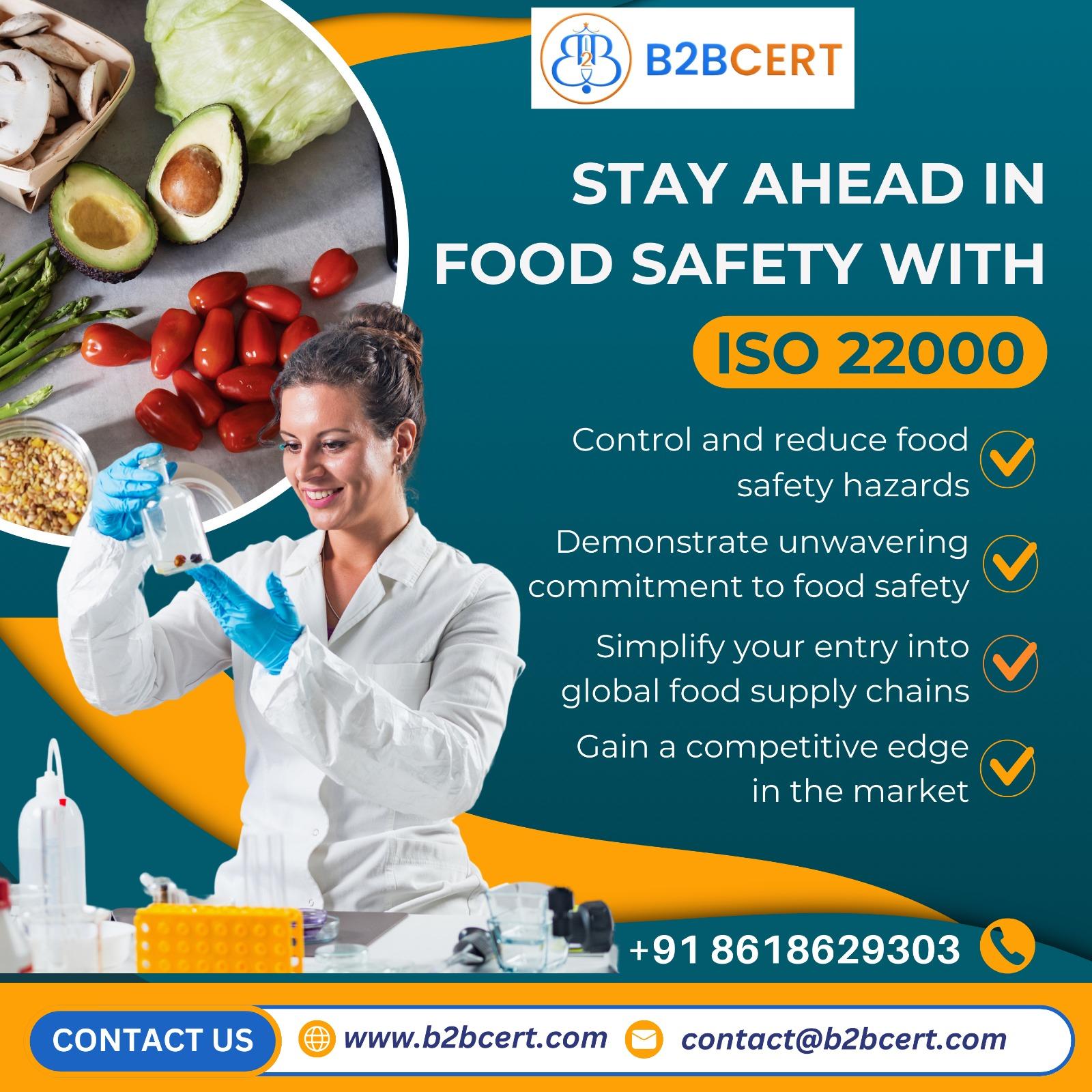What Cleaning and Sanitizing Agents Do You Use, and Are They Verified for Use in Food Contact Areas?

Maintaining hygiene in food processing and preparation environments is essential for ensuring food safety, preventing contamination, and complying with global standards like ISO 22000 Certification in Bangalore. Cleaning and sanitizing agents play a critical role in achieving these objectives by eliminating dirt, bacteria, and other contaminants that can compromise food quality and consumer health. However, the effectiveness of these agents depends on their proper selection, usage, and verification for food contact areas.
Understanding Cleaning and Sanitizing Agents
Cleaning agents are substances used to remove visible dirt, grease, and food residues from surfaces. These include detergents, degreasers, and abrasive cleaners. On the other hand, sanitizing agents are chemical solutions designed to reduce or eliminate microorganisms on cleaned surfaces to safe levels, as defined by food safety standards.
Common cleaning agents include:
-
Detergents: Remove soil and organic matter effectively.
-
Alkaline cleaners: Ideal for removing fats, oils, and protein residues.
-
Acid cleaners: Effective for removing mineral deposits and scale buildup.
-
Solvent-based cleaners: Useful for heavy-duty degreasing applications.
Common sanitizers used in food industries include:
-
Chlorine-based sanitizers: Fast-acting and broad-spectrum but require careful handling.
-
Quaternary ammonium compounds (Quats): Effective and stable but must be rinsed properly to avoid residue.
-
Peracetic acid and hydrogen peroxide: Eco-friendly, decomposing into harmless substances.
-
Iodophors: Provide broad antimicrobial activity, suitable for use in dairies and beverage plants.
Verification of Cleaning and Sanitizing Agents for Food Contact Areas
Not all cleaning or sanitizing agents are safe for use on surfaces that come into direct contact with food. Verification ensures that these agents meet regulatory standards and do not leave harmful residues that could contaminate food products.
1. Compliance with Regulatory Standards
Food-grade cleaning agents must comply with regulations set by recognized authorities such as:
-
U.S. Food and Drug Administration (FDA)
-
European Food Safety Authority (EFSA)
-
Bureau of Indian Standards (BIS)
Manufacturers must ensure that all agents used in food processing areas are approved and meet the safety guidelines set by these authorities.
2. Verification through Documentation
Every chemical agent used in cleaning or sanitizing food contact areas must have a Material Safety Data Sheet (MSDS) and a Technical Data Sheet (TDS). These documents provide information about composition, usage instructions, safety precautions, and residue control.
3. Validation and Effectiveness Testing
Before implementing any cleaning or sanitizing product, organizations should perform validation testing to ensure its effectiveness under operational conditions. This involves microbial testing before and after cleaning to verify that the sanitizer effectively reduces contamination.
4. Monitoring and Record-Keeping
Verification is not a one-time activity. Continuous monitoring and record maintenance help track the cleaning performance over time. Regular audits ensure that only verified and approved agents are used in food contact zones.
Best Practices for Using Cleaning and Sanitizing Agents
1. Segregation of Cleaning Zones
To prevent cross-contamination, separate cleaning tools and agents for food contact and non-food contact areas. Use color-coded cleaning equipment for easy identification.
2. Proper Concentration and Contact Time
Each cleaning or sanitizing agent must be used at the correct concentration and contact time as recommended by the manufacturer. Overuse can cause chemical residues, while underuse may leave harmful microorganisms behind.
3. Rinsing and Drying
After sanitization, surfaces should be thoroughly rinsed (if applicable) to remove chemical residues. Proper drying prevents bacterial regrowth in moist environments.
4. Staff Training and Awareness
All personnel involved in cleaning operations should be trained on the safe handling and application of cleaning and sanitizing agents. Training should cover aspects such as dilution procedures, PPE usage, and hazard identification.
5. Regular Review and Updates
Cleaning protocols should be reviewed regularly to incorporate new products, updated safety guidelines, and technological advancements. This ensures ongoing compliance and effectiveness.
Role of ISO 22000 in Cleaning and Sanitization Practices
ISO 22000 Certification in Bangalore is an internationally recognized standard for Food Safety Management Systems (FSMS). It integrates the principles of HACCP (Hazard Analysis and Critical Control Points) with management system processes to ensure food safety across the supply chain. One of the core aspects of ISO 22000 is the emphasis on maintaining a hygienic environment through effective cleaning and sanitization.
Key benefits of implementing ISO 22000 include:
-
Systematic control of cleaning and sanitizing operations to prevent contamination.
-
Traceability and documentation of all cleaning activities and agents used.
-
Compliance with international regulations, ensuring consumer safety and brand trust.
-
Continuous improvement of hygiene practices through regular audits and reviews.
Organizations that adopt ISO 22000 can work closely with ISO 22000 Consultants in Bangalore to identify approved cleaning agents, develop detailed cleaning schedules, and establish verification mechanisms. Professional consultants help businesses evaluate the safety and suitability of cleaning products, conduct risk assessments, and implement monitoring protocols to maintain food safety compliance.
Conclusion
The choice and verification of cleaning and sanitizing agents play a crucial role in maintaining food safety, protecting consumers, and complying with international standards. Using unverified agents can lead to food contamination, regulatory penalties, and reputational damage. By implementing the best practices outlined above and adhering to the guidelines of ISO 22000 Certification in Bangalore, organizations can ensure that all cleaning and sanitizing agents used in food contact areas are safe, effective, and compliant.
For expert assistance in achieving certification and maintaining food safety standards, partner with ISO 22000 Consultants in Bangalore. Their professional ISO 22000 Services in Bangalore can help you implement a robust hygiene and sanitation management system, ensuring your organization meets global food safety benchmarks.
- Art
- Causes
- Crafts
- Dance
- Drinks
- Film
- Fitness
- Food
- الألعاب
- Gardening
- Health
- الرئيسية
- Literature
- Music
- Networking
- أخرى
- Party
- Religion
- Shopping
- Sports
- Theater
- Wellness



